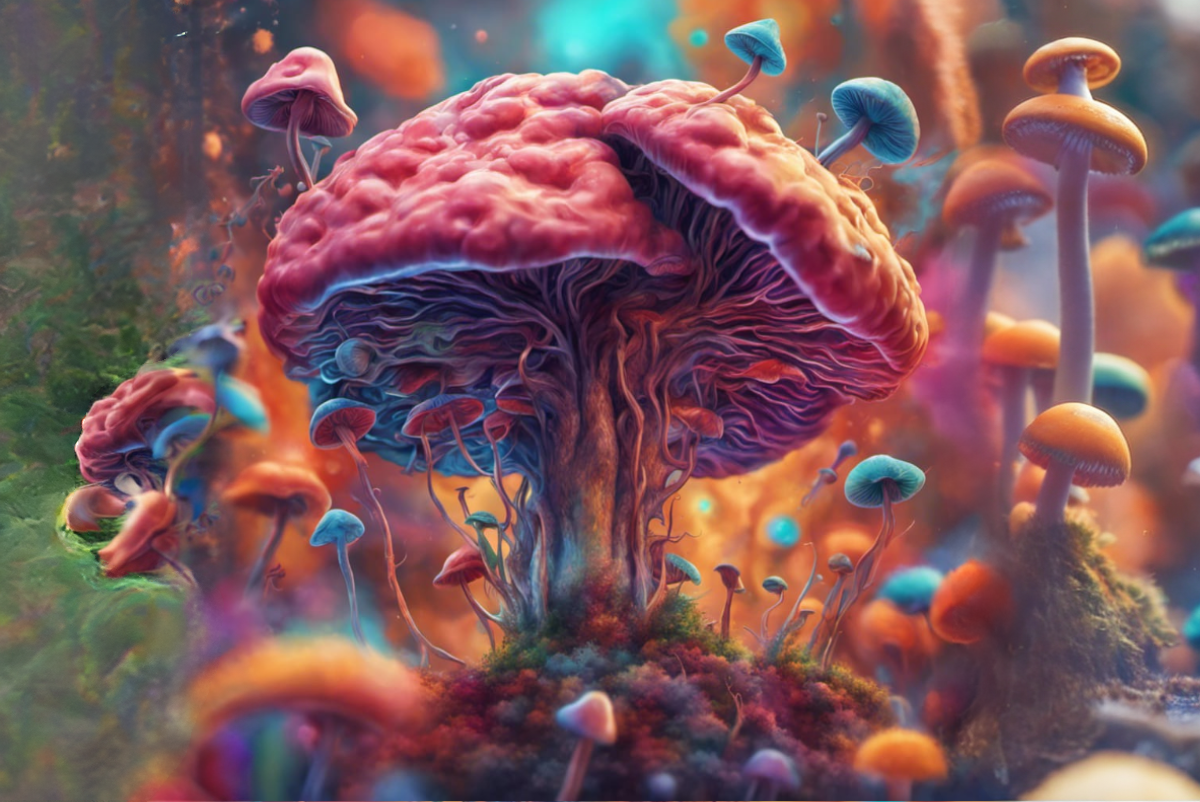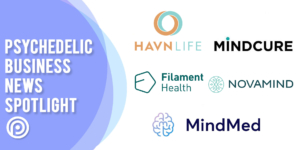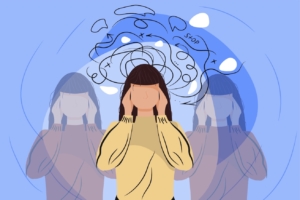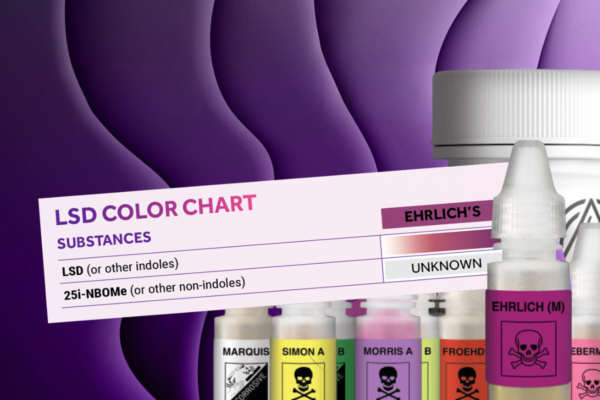
If you’ve been following the psychedelics renaissance unfolding over the last two decades, you probably have heard of Dr. Matthew Johnson, a professor of psychiatry and behavioral sciences at Johns Hopkins, who has been at the forefront of the most exciting research into the effects and applications of psychedelic therapy since 2004.
He’s appeared on 60 Minutes, CNN, NPR, Fox News and BBC to talk about the subject, and more recently, he sat down all by himself for YouTube channel Big Think to answer “24 huge questions about psychedelics” for over two hours.
For those that don’t have time to watch the entire talk, most of which may be a little redundant for the avid psychedelics connoisseur, Psychedelic Spotlight wanted to pluck out and present five of his most fascinating insights.
Psychedelics Enhance Meditation Practice
“People who are starting a meditation practice, does a psilocybin experience help to jumpstart that practice? Does it help the person to get more value out of their meditation experience?” he asked.
“We found results consistent with that,” he answered. “Particularly with more pro social benefits: improvements in people’s lives, helping others, these sort of altruistic traits. Having the psilocybin experiences on top of the meditation practice, you seem to get more bang for your buck.”
Johnson also shared he was surprised to see experienced meditators, with thousands of hours of practice under their belt, be “floored” by a psychedelic dose.
“They’ve kind of cleaned up their own mess in their psychological basement, so to speak,” he explained. “But I remember the first or second participant in that line of research; the person was completely focused on all the kind of baggage that came from being the second fiddle child in the family of origin dynamic. You know, jealous of the older sibling and this type of stuff. You would have thought [they] would have handled all this kind of like low-level psychological baggage decades ago, but no, people are can be profoundly hit by these experiences.”
You Get What You Need
When Johnson was asked what has most amazed him in his research, he also noted how unresolved trauma tends to float to the surface during a psychedelic trip, even if the intention behind the trip isn’t so obviously related.
“They might be in a study to quit smoking and they have some unresolved trauma from some horrific relationship from 40 years ago that just seems to come to the surface,” the researcher explained.
“There does seem to be something — and we still need to figure out how this works scientifically, and verify that it works this way scientifically — but it seems through observation that the material that needs to come up psychologically for that person is the material that comes up,” he continued. “So, the way I express this sometimes to participants, it’s like The Rolling Stones lyric: ‘you may not get what you want, but you may get what you need.'”
And what our society really needs is more preventive healthcare strategies so people avoid mental and physical illness, in the first place.
“I think psychedelics, big picture, can help us move towards a world where we start to understand what it takes for the human being to be mentally healthy,” Johnson said. “What can we do in the spirit of prevention? Maybe psychedelics will play some role in that, but maybe they’ll also point to other techniques that will allow us to keep ourselves healthy.”
Testing Teens Is Inevitable
Johnson said that psychedelics’ ability to treat such a wide range of disorders is “unheard of.” Conditions alleviated include depression, anorexia, addiction, obsessive compulsive disorder, and PTSD — to name a few.
Studies, so far, have been limited to 18 years of age and up, and with such promising results, Johnson think it’s only a matter of time until effects on children need to be studied.
“As we continue the research, we’re going to need to look at younger populations. In fact, this is something the FDA really wants,” he explained. “It doesn’t matter if it’s psychedelics or something else. If it looks really beneficial in adults, there is a mandate to really explore this, because adolescents suffer from depression and addiction, etcetera.”
“There are extra concerns about the developing brain,” he acknowledged. “But there are concerns about untreated mental illness, including suicides and overdoses. So, there’s a risk in not exploring this [in adolescents] and being very, very cautious.”
All Disorders Are Rooted in Addiction
“I kind of think of all of these disorders as different forms of addiction,” Johnson shared during the long talk. “So, whether it’s to a substance like tobacco or alcohol, cocaine, or a way of thinking about yourself in depression — the self-persecutory thoughts that we all have but that are over expressed in someone with depression — and once you’re in it, it becomes a self fulfilling prophecy.”
“Once you spend a lot of your day calling yourself a failure, then that rubs off on other people and you spiral downward, and that’s an addiction,” he continued. “It’s this narrowed, mental and behavioral repertoire.”
Our identification with thoughts create narratives that we can’t stop clinging to, sometimes at the detriment of our mental health, but psychedelics, Johnson said, can help break the cycle.
“And wherever that’s taking you—to a substance or to a certain sub-optimal way of thinking about yourself—psychedelics, when done well in the right setting, have the ability to just blow people out of that narrowed story.”
How Big Pharma Will Integrate Psychedelics
According to Johnson, the mainstream pharmaceutical industry is not scared of psychedelics, but rather “waiting in the wings,” with intentions to buy up smaller companies that successfully develop novel drugs.
“It’s mainly small venture capitalists [and] startups that are exploring psychedelics and investing in their potential development of the FDA pathway, but that’s been the trend and for mental health drugs for a while now,” he explained. “Let the small companies make these investments and if they come up with promising findings early on, then the Big Pharma companies come in and pay the millions of dollars to buy those companies out and move forward with it.”
In fact, we’re already seeing this in action. Psychedelic Spotlight recently reported Otsuka, a Japanese pharmaceutical giant, recently signed an agreement to acquire Mindset Pharma, a year and a half after making a strategic investment in the psychedelic medicine startup to fund development of two families of novel psychedelic compounds.
“But it’s a very different model, where you’re not going to be making a whole lot of money selling that pill on a daily basis,” Johnson added. “Hopefully, you’re only selling one, two or three pills to someone over their lifetime if it works. So, more of the business model would be one of the infrastructure and the professional guidance through these sessions.”





